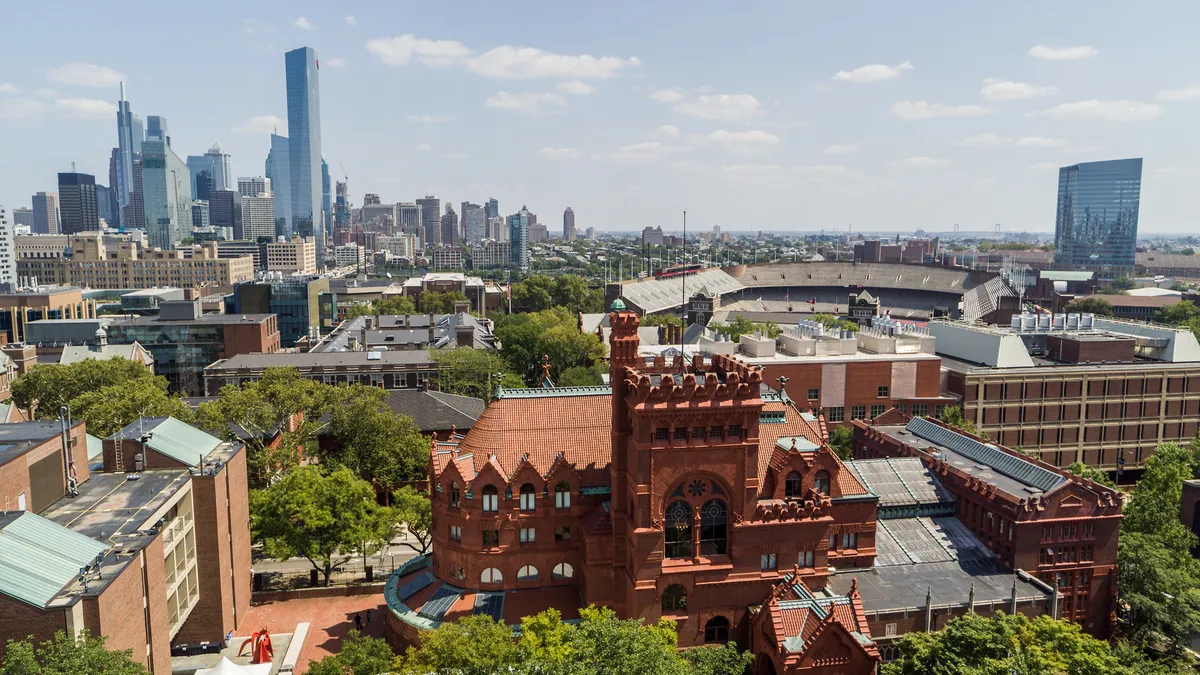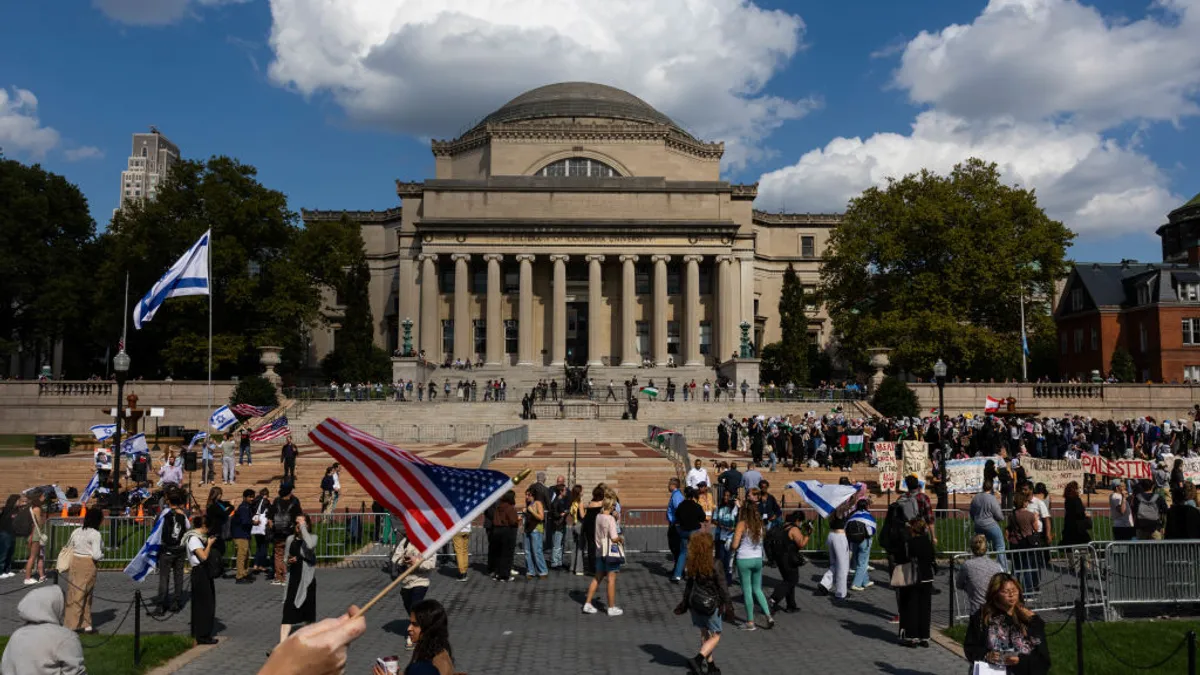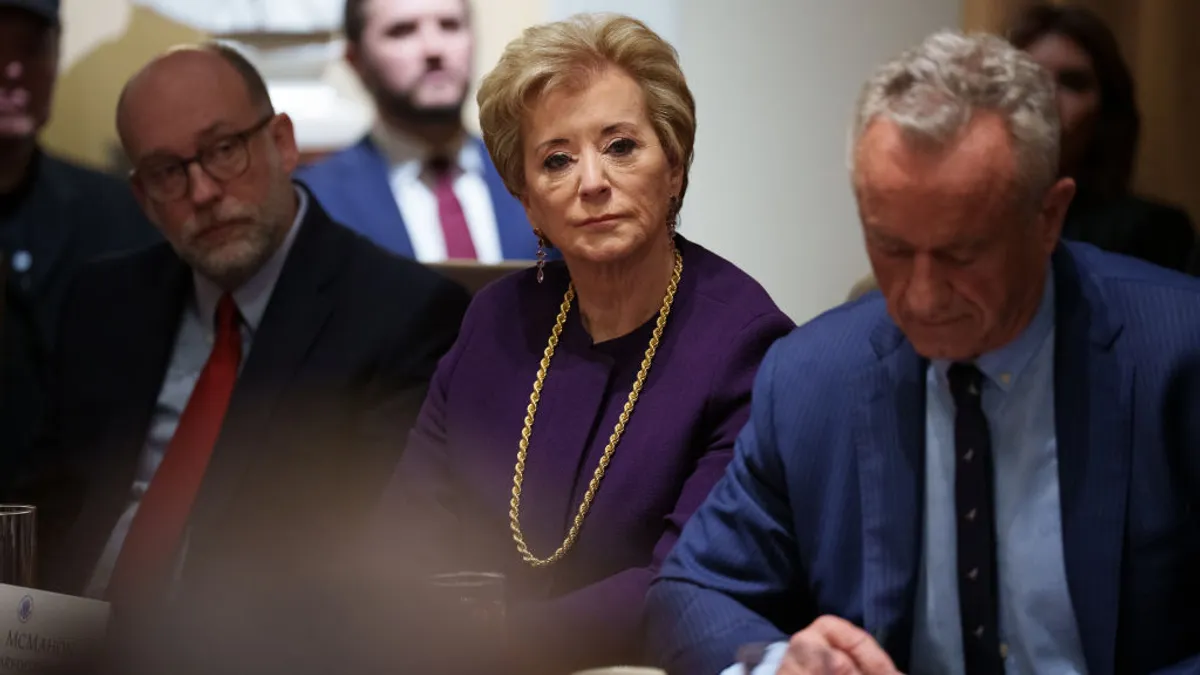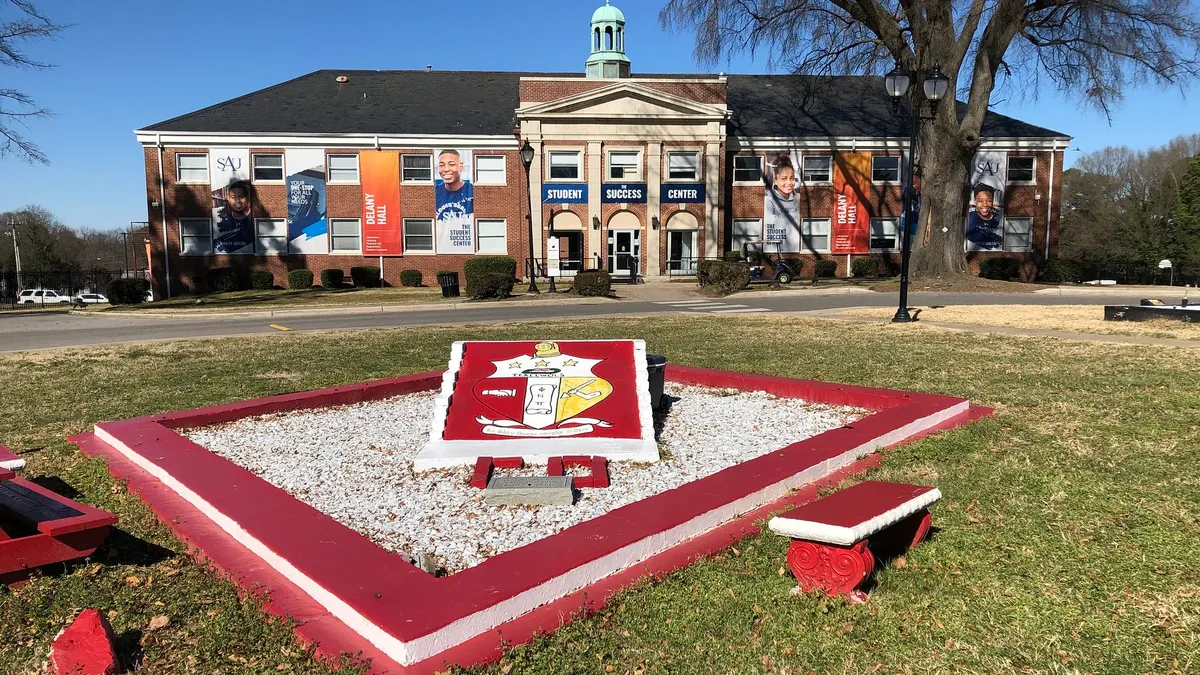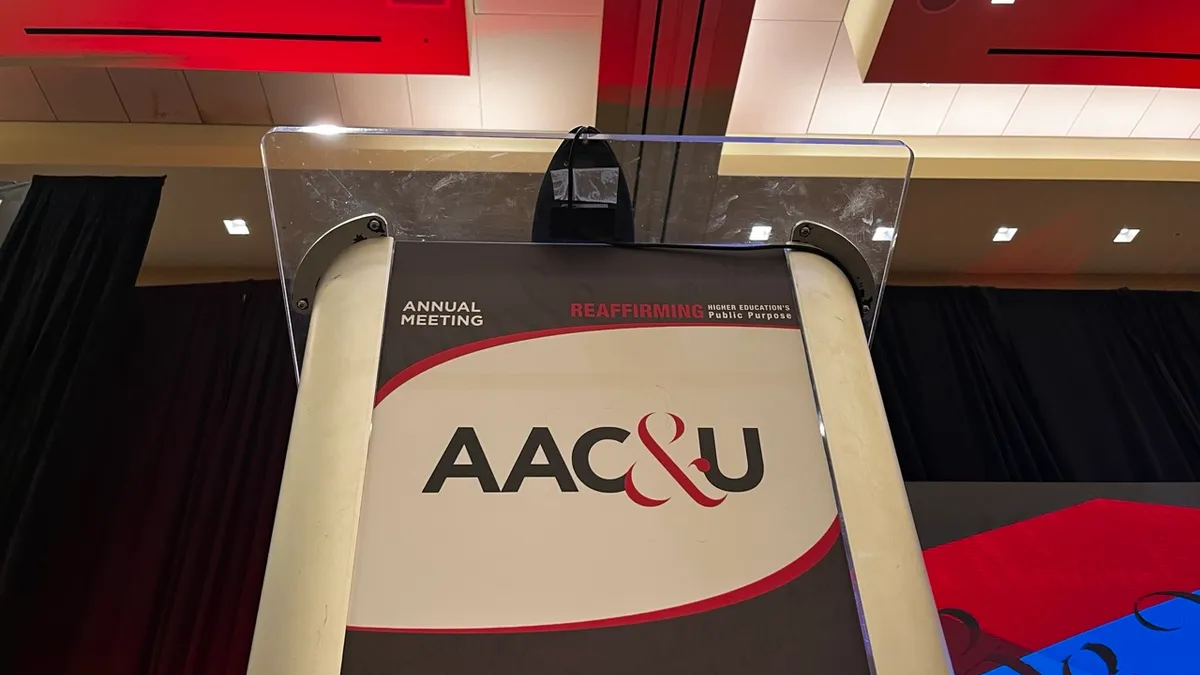Less than a week into his new job as president of Goddard College, Bernard Bull found himself dining with accreditors who were assessing the school's viability. Two months before, in September 2018, the New England Commission of Higher Education vote to place the Vermont college on probation for two years over budgetary and leadership concerns.
Goddard's future looked bleak. Earlier that year, an independent auditor expressed doubts the college would survive the next 12 months after suffering two years of operating losses and freefalling enrollment.
"It was a pretty grim and uncertain moment for the college," Bull said.
Two years later, however, the college has closed its deficit, and NECHE recently took it off probation and renewed its accreditation for 10 years. With 372 students this fall, the school also grew enrollment for the first time in several semesters. And school officials are fine-tuning a financial model for academics that allows them to adapt to enrollment fluctuations and foster more interdisciplinary work.
Bull is moving on, however. He recently accepted an offer to become president of Concordia University, Nebraska, a Lutheran college, and plans to leave Goddard at the end of the academic year. He is an alum of Concordia's eight-college system and served in various roles at its Wisconsin campus from 2006 to 2018.
Higher Ed Dive spoke with Bull about how he helped Goddard through a tumultuous period and what challenges remain for the school.
Editor's note: This interview has been edited for clarity and brevity.
HIGHER ED DIVE: What accomplishments at Goddard College are you most proud of?
BERNARD BULL: Two years ago, we weren't sure we were going to survive the next six months financially. It was a college of 750 students several years earlier, and at the time of my arrival, it was on its way down to around 330 students.
Fast forward to today, we are operating from a balanced budget with small but growing cash reserves. We had our best fundraising year in over a decade last year, raising close to $1 million in scholarship funds and some unrestricted gifts that can help the college, too.
We had the highest fall incoming class since 2016. We hit our enrollment projections for the first time in seven semesters — and we did it in the middle of a pandemic. We still have a lot of work to do, but we've definitely done something that we are all very, very proud of, and it was absolutely a community effort.
Goddard eliminated a deficit of more than $1 million. Can you tell me about that process?
We are primarily a tuition-dependent institution, and it's really important to take care of every dollar students are giving to the college. We have done a much better job of being really careful and reducing unnecessary spending. We did have to reduce some staff a couple of years ago. Along the way, there has also been some reduction on the faculty side and we had to use some furloughs.
We essentially reduced our spending by about 30%, but that doesn't mean we reduced our staff by 30% because we also reduced spending in other places, whether it was travel budgets or subscriptions we didn't need anymore.
Were faculty members included in the decision-making about what would get cut from the budget?
Faculty and staff are unionized separately through the United Auto Workers. We had to work very closely with the staff union, and they understood the dire situation of the college.
The same thing happened on the faculty side. If the bargaining units weren't willing to come to the table and look at the data together and acknowledge our needs and adapt, there's no way the college would have made it.
Goddard also launched the $4 million Together for Goddard fundraising campaign this year. How has that progressed?
We haven't achieved the $1 million mark, so we have a long way to go. We're still stable, though.
The way our fundraising works is the first half to three-fourths of the year, we're raising the money that we need to contribute to the annual budget. Once we achieve that goal, we switch over and anything in addition can contribute to the Together for Goddard fund, which is essentially that cash reserve piece.
I'm still hopeful there's someone who will connect with Goddard and be willing to make some of those six- and seven-figure gifts to help us have a rapid jump to the cash reserve size that gives us the most strength and flexibility. Then we can shift our focus more toward endowment building.
[Editor's note: Goddard's endowment is currently less than $2 million, Bull said.]
You've made big changes to your admissions office as well. How did that go?
We did not have customer relationship management software that's used in all modern admissions offices to track students and their applications. It assigns loads of prospective students to different admissions counselors and monitors their conversations to make sure we're getting back to students in a timely manner.
We hired a veteran director of admissions who knew how to build out these systems and support counselors. The admissions counselors got trained in these practices and really stepped up.
In the marketing office, oftentimes you have people focused on digital advertising and lead generation and people focused on public relations and brand marketing. We didn't have the resources to do everything. We hired someone whose primary expertise was in digital advertising and lead generation, so that's what we prioritized, and then we have a half-time person who focuses on storytelling for the college.
Goddard has also been leasing some of its buildings. Is that another way it's been raising revenue?
That's not going to generate huge amounts of revenue. We're located in rural central Vermont. It's not like we're in Boston.
We're interested in having like-minded organizations join us on campus with some of the buildings we're not using right now. They'll be paying a modest, reasonable rent for the space. But perhaps there are opportunities for our students to work with these organizations, which may work with people who learn about Goddard and turn into students in the future.
Goddard announced it would be remote because of COVID-19 ahead of most other schools. How do you think that decision impacted the college this academic year?
We did it after assessing key factors. If we do it virtually, we can actually reduce the cost for students because they wouldn't have to pay for room and board or travel. Some students could be saving thousands of dollars. Some students were getting laid off. Some had to stay home or take more time off work to care for loved ones because of illnesses. It has made it harder for people to continue their studies, and that's why a lot of colleges saw students taking the semester or the year off. We, on the other hand, had our best returning student numbers in years. And I believe part of that was because we adjusted and adapted to our students' life circumstances.
We also decided to stay virtual for the spring semester to ensure we're doing everything we can to help keep everyone safe. We did a survey of students, staff and faculty, and there was overwhelming support for that decision. Our absolute hope is to be back in person before the fall.
What do you think will be some of the biggest challenges and responsibilities for your successor?
I'd rather the board speak to this question. It's really the board's vision to set the vision for the college. It's incredibly important at Goddard, not just for a president, but for anyone in a leadership role, to commit to shared governance and honor the wisdom of the community in decision-making processes.
What do you think are going to be some of your biggest challenges when you take the helm of Concordia University, Nebraska, next year?
Concordia University, Nebraska, is a pretty strong, financially stable institution. It has a very clear understanding of its identity and mission as a Lutheran Christian institution. The challenges are what many Midwest colleges are going to have to address.
The university has a predominantly traditional undergraduate population, and the demographic data is telling us with absolute certainty that there's going to be a much smaller number of high school graduates in the coming years, which means there's going to be much greater competition for a smaller number of prospective college students. How Concordia University, Nebraska, decides to respond to that trend is going to be key to its strength.











